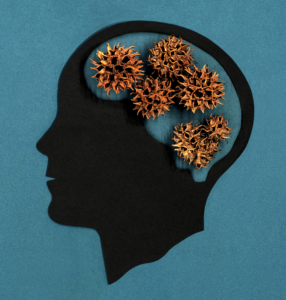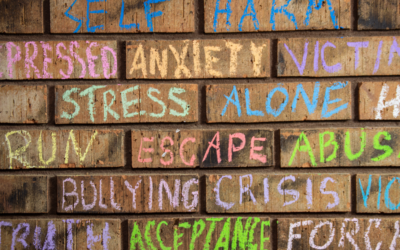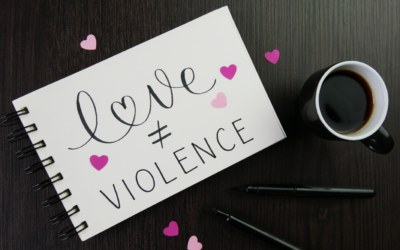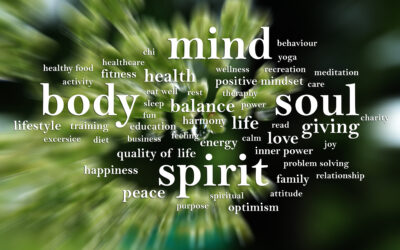Trauma can impact relationships, causing anxiety, depression, or PTSD. It alters behavior, thoughts, and communication. Guilt and shame may persist. Building healthy relationships may require time and attention. Recovery is possible with patience, support, and self-care. There is hope for moving forward after difficult times.
Life is a journey that comes with both good and bad times, happy moments, and difficult challenges. Unfortunately, some people experience unexpected and painful events that can leave a deep mark on them. This mark can affect the way they build and maintain relationships with others. In this discussion, we will explore what trauma is, how it can impact relationships, and how we can heal and build healthy connections after experiencing a traumatic event.
What is Trauma?
Trauma is a strong and overwhelming reaction to a distressing event or a series of events that disrupt an individual’s sense of safety and well-being. It can happen to anyone and can be caused by a variety of experiences, from a single incident to ongoing challenges. Trauma is a complex problem that can affect our thoughts, emotions, and behaviors, leading to anxiety, depression, and sometimes post-traumatic stress disorder (PTSD). It’s important to understand and address trauma to help people recover and heal.
Trauma can happen to anyone, anywhere, at any time. It could be the result of a car accident, a natural disaster, physical or emotional abuse, or any experience that leaves a lasting mark on a person’s mind. It’s important to understand that trauma affects individuals differently, depending on their age, past experiences, and support systems. It is a deeply personal and subjective experience that can profoundly impact a person’s life.
Trauma can have a deep and long-lasting impact on a person’s life, affecting different areas such as their relationships, work, and daily activities. It can make someone feel alone, powerless, and ashamed, and it might be hard to recover without the right help and support. However, with proper treatment and care, people can heal from trauma and move forward towards a healthier and more fulfilling life.
Impact on Relationships

Trauma can cast a long shadow over our connections with others. Whether it’s the aftermath of a personal tragedy or the echoes of a difficult childhood, the scars of trauma can manifest in relationships in various ways. Communication may become strained, trust eroded, and emotional intimacy can feel like an unattainable goal. Understanding the impact of trauma is the first step towards healing both individually and within the context of relationships.
Trust Issues
Going through a traumatic event can affect a person’s trust in others. It can cause them to feel insecure and scared of being hurt or exposed. This can make it challenging for them to establish meaningful relationships and connect with others on a deeper level.
Communication Challenges
Going through a traumatic experience can make it hard for individuals to communicate effectively and express themselves clearly. It can also be scary to communicate openly due to fear of retaliation or judgment. This often leads to misunderstandings and can create barriers to effective communication in both personal and professional relationships.
Emotional Intimacy
When someone has gone through a difficult and painful experience, forming close emotional connections with others can be hard. The emotional pain and fear of being vulnerable can make it difficult to build strong relationships with people.
Attachment Styles
Going through a traumatic experience can have a significant effect on how someone builds relationships with others. This is because the trauma can alter the way they form emotional connections with people. Some people may become very dependent on others for comfort and support. In contrast, others may start avoiding relationships altogether as a way to protect themselves from getting hurt again.
Reenactment Patterns
Many people who have been through difficult experiences in the past may unintentionally repeat those patterns in their current relationships. This can cause conflicts or problems that are hard to solve without realizing what’s happening. Often, these patterns are deeply rooted in our minds, and we may need help from therapy or other forms of support to identify and address them.
Fear of Abandonment
Trauma can cause people to become terrified of being abandoned, which can make it tough for them to form healthy and lasting relationships. They might always look for signs of rejection to protect themselves from the pain, making it difficult to feel secure and trust others. This fear can become deeply rooted, making it challenging to feel safe in a relationship.
Common Trauma Reactions

People react differently to traumatic experiences, and there are a lot of factors that can influence how someone might react. Some people might be able to handle trauma better than others, and having a support system can also make a big difference. However, people might have some common reactions after a traumatic experience. These reactions can happen immediately or might take some time to develop. Here are a few examples of common trauma reactions:
Flashbacks
People who have gone through a traumatic experience might find themselves reliving it through intense and disturbing memories that may be unpredictable.
Hypervigilance
Hypervigilance is when a person is always on high alert, feeling extra sensitive to any potential danger around them. It can lead to quick reactions, difficulty relaxing, and constantly feeling like they need to be on the lookout for danger. This can make it hard for people to focus, sleep, and relax.
Avoidance
It’s common for people to try to deal with the pain and discomfort that come with a traumatic event by avoiding things that remind them of it. This can include staying away from certain places or events that trigger upsetting memories or emotions, as well as avoiding people who were involved in the trauma in some way.
Emotional Numbing
People may start to feel like they’re not feeling anything anymore. This can happen as they try to protect themselves from all the intense emotions that come with what they went through. They might feel like they’re not connected to their own feelings or the world outside of them. It’s like they’re shutting down emotionally to keep themselves safe.
Irritability and Anger
Experiencing a traumatic event can make you feel easily irritated and angry. This is because it can cause your body to become very alert and sensitive, making it hard to regulate your emotions. It can also make you feel like you have lost control and that everything around you is a threat. Sometimes, people use anger as a way to cope with these feelings.
Sleep Disturbances
When we go through difficult experiences, they can haunt us even in our sleep, resulting in unsettling dreams. This is because these experiences tend to linger in our subconscious and can resurface during our slumber, creating the illusion that we are reliving them again.
Negative Changes in Thoughts
When we keep telling ourselves negative things and only focus on our weaknesses, it can lead to unhealthy thinking. This can cause us to blame ourselves, feel guilty, and believe our situation will never improve. These harmful thoughts can take over our minds and affect how we view life and deal with everyday problems.
Physical Symptoms
Experiencing a traumatic event can affect both the mind and body. Physical symptoms such as difficulty sleeping, tiredness, muscle tension, digestive problems, heart issues, headaches, feeling dizzy, weakened immune system, being constantly alert, and sexual problems can all be caused by trauma. These symptoms show how our mind and body are connected when responding to difficult experiences.
Guilt and Shame
After going through something traumatic, a person might feel like they’re to blame, even if they didn’t cause what happened. This sense of responsibility can turn into a heavy feeling of guilt or shame that sticks around for a long time, messing with their mental and emotional well-being. Even if they know, logically, that they’re not at fault, it’s hard for them to shake off the feeling of doing something wrong. This can lead to feelings of regret and self-blame despite trying to make sense of things rationally.
Building Healthy Relationships After Trauma

Recovering from trauma and building healthy relationships can be a challenging journey that requires time, patience, and a willingness to face difficult emotions and experiences. However, embarking on this journey can lead to greater self-awareness, personal growth, and strength in the face of adversity.
Reconnecting with people after experiencing trauma involves dealing with the effects of the traumatic event on one’s thoughts, emotions, and actions. This may require working through emotions such as guilt, shame, or fear and learning how to communicate honestly, transparently, and supportively with others.
Although it may not be easy, the journey to building healthy relationships after trauma can be a rewarding and transformative experience. Seeking support from loved ones, professionals, or support groups, and finding new ways to cope with stress and difficult emotions can be part of this journey.
Healing from trauma and rebuilding relationships is a personal and unique process for each individual. There is no one-size-fits-all approach to it, but developing meaningful and healthy connections with others requires patience, understanding, and a willingness to grow. To help you build meaningful relationships after experiencing trauma, here are some tips:
Open Communication
In any relationship, creating a safe and open space for honest communication is essential. It’s important to share your feelings and concerns with your partner and encourage them to do the same in a supportive and healthy way. This helps both people feel valued and respected, leading to a stronger and more positive relationship.
Seek Professional Help
Experiencing trauma in a relationship can be overwhelming and confusing. If you find yourself struggling to cope, it’s important to know that seeking the guidance of a trained therapist or counselor can provide you with valuable tools and insights to help you navigate the complexities of your experience. With their professional support, you can work through your trauma, process your emotions, and find healing and growth in your relationships. Don’t hesitate to reach out for help when you need it.
Patience and Understanding
Helping someone through a traumatic experience requires patience and understanding. It’s important to respect their unique pace of healing, listen actively without rushing them, and validate their feelings. This means avoiding pressuring them to share or deal with things too quickly and encouraging them to be kind to themselves, even when they face setbacks. It’s also essential to offer reassurance, celebrate any progress, and suggest professional help if necessary.
Establish Boundaries
Maintaining a safe and healthy relationship involves knowing and respecting boundaries. It’s important to communicate personal space and understand when to open up or give someone their privacy. This not only includes physical boundaries but emotional ones as well. By respecting each other’s boundaries, we can establish trust and create a sense of safety in our personal and professional connections.
Cultivate Self-Care
Prioritizing self-care is crucial, not only for your well-being but also for the health of your relationship. When you care for yourself, you are better equipped to show up as your best self in your relationship. It helps you feel better about yourself and increases your overall happiness, which can lead to a stronger and more fulfilling relationship. Making self-care a priority also sets a positive example for your partner, encouraging them to care for themselves. So, take the time to do things that make you feel good, whether exercising, reading a book, or simply taking a relaxing bath. And remember to make time for self-care as a couple, too, whether it’s taking a weekend getaway or simply having a quiet night together. By nurturing your well-being, you can contribute significantly to the health and longevity of your relationship.
Conclusion
Love is a powerful emotion that has the potential to heal even the deepest wounds. Relationships, when approached with empathy and patience, can be a source of strength and support for individuals who have experienced trauma. It’s important to recognize the impact that trauma can have on both individuals and couples and to understand that each person may react differently to the aftermath of a traumatic experience.
But with commitment and effort, healthy connections can be built, and individuals and couples can embark on a journey of resilience and rediscovery. This journey may involve confronting difficult emotions, seeking professional support, and practicing effective communication and problem-solving skills.
Remember that you are not alone in your struggles and that there is support available to help you navigate the path to healing and thriving relationships after the storm. Whether it’s through therapy, support groups, or simply reaching out to loved ones, there are resources and tools that can help you on your journey.
In the end, it’s important to remember that healing is possible and that healthy, fulfilling relationships are within reach. Individuals and couples can find strength and hope in the face of adversity by working together and approaching each other with compassion and understanding.










